Top 9 Tips Before Hiring Any Campervan or Motorhome in Australia
Planning on exploring the Land Down Under in a rented motorhome or campervan? Before you place your reservation, you need to make sure that you are ready to go with the paperwork and that you understand your liabilities should you damage the vehicle. Here is everything you need to consider before you rent and drive a campervan or motorhome on your Australian vacation.
1. You need a current driver’s license.
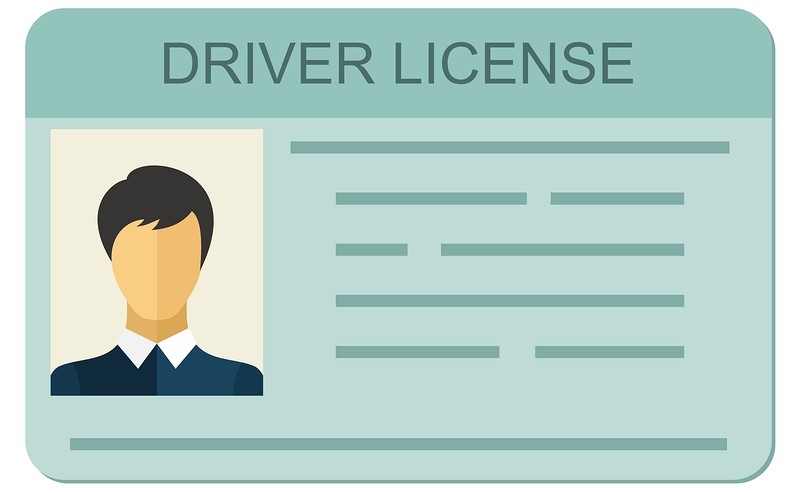
2. You require a credit or debit card for bond and payment.
You will need to use a credit or debit card to pay for the cost of your rental. You will also be required (by most 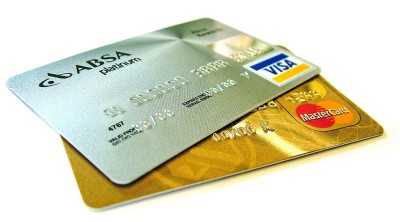
If you do not wish to leave a bond, most companies offer what they call “excess reduction”. This is an additional daily rate charge on-top of the rental rate to reduce your bond and excess liability all the way down to Nil.
3. You need money to cover fuel costs
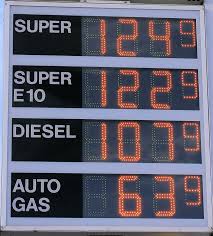
That is one of the reasons it is important to go into your trip with an organized itinerary. Otherwise, you have no way to estimate what your costs might be.
Of course, you may end up deviating from your plan. You might find a road that you are curious about, or hear about a nearby park that you would like to visit. Or there might be a situation where a road is closed and you end up having to take a longer detour. This means you may very well end up driving more miles than you expected.
So when you calculate your projected fuel costs, estimate on the high side. Make sure you will have enough money to cover all contingencies.
4. You need to plan a route which avoids unsealed roads.
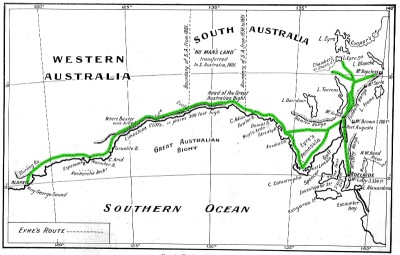
The reason for this strict policy against unsealed roads is one of safety. First of all, driving on an unsealed road always poses an added risk of breaking down. Secondly, if you do break down, roadside assistance probably cannot come to you. That means that you can end up getting stuck and having to pay for damages when you do eventually find a way to get yourself and the vehicle back to civilisation.
If your rental company says you cannot drive on unsealed roads, do not do it. There are people who break this rule, but they do so at their own risk (and expense).
5. While driving, take extra care not to damage the underbody or roof of the vehicle.
Ideally, you want to return the motorhome or campervan you have rented in the exact same condition you received it in. But there are some parts of the vehicle you need to be extra careful with, like the underbody or roof. If you damage these parts of the vehicle, they are usually not covered, so that means that the entire expense will come out of your pocket.
6. Be sure to book well in advance if you will be travelling to Australia during peak season.
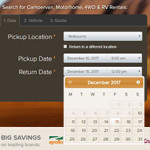
7. Try and plan a longer trip to save money.
It might sound counterintuitive, but the most economical trip is often a longer one. If you book for three days or less, you probably will pay a higher rate than you will if you book a longer rental. Discounts for longer trips are common. If you think you cannot afford to tack on extra days, think again. Australia has thousands of free and low-cost campgrounds. With the money you save on your accommodations, you may very well be able to afford these extra days and enjoy a better value.
8. Be ready for toll roads.
Another trip expense you need to be prepared for are the numerous toll roads throughout the country. These are especially common around capital cities. You may be able to use cash to pay the toll at some booths, but not all of them accept it as a payment method. Instead, they take an electronic tag, which you can purchase from the operator at the booth. You mount the tag on your windshield, and when you drive through a toll booth, the amount is deducted via your credit card or bank account.
If you fail to pay your tolls, there is a fine which you can be charged, and your rental company will likely charge you an additional fee.
Some campervan rental agencies may sell you an electronic tag. If yours does not, you can buy one from a toll operator. Alternately, you can acquire a pass designed for tourists such as Sydney’s “eMU Pass.” The eMU Pass gives you access to all Sydney toll roads for a 30 day period.
9. Watch out for exchange rate fluctuations.

As you can see, there are a lot of considerations that you need to be prepared for when it comes to money, paperwork and liabilities before you hire a campervan or motorhome in Australia. If you are smart though and you plan ahead, you should be able to cut back on expenses and rent the perfect vehicle for your needs.

 English
English
